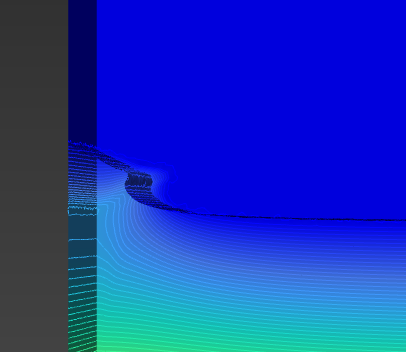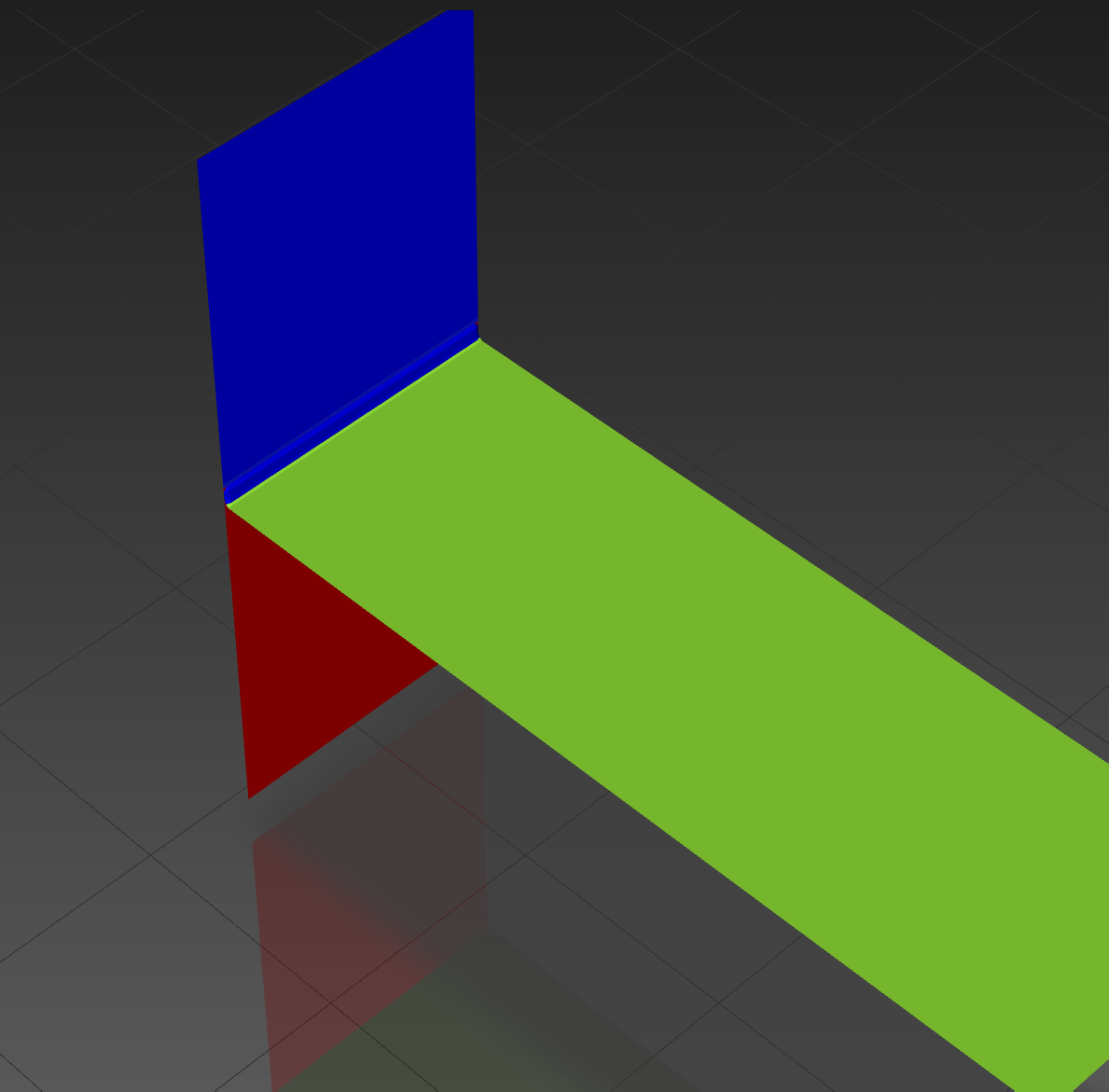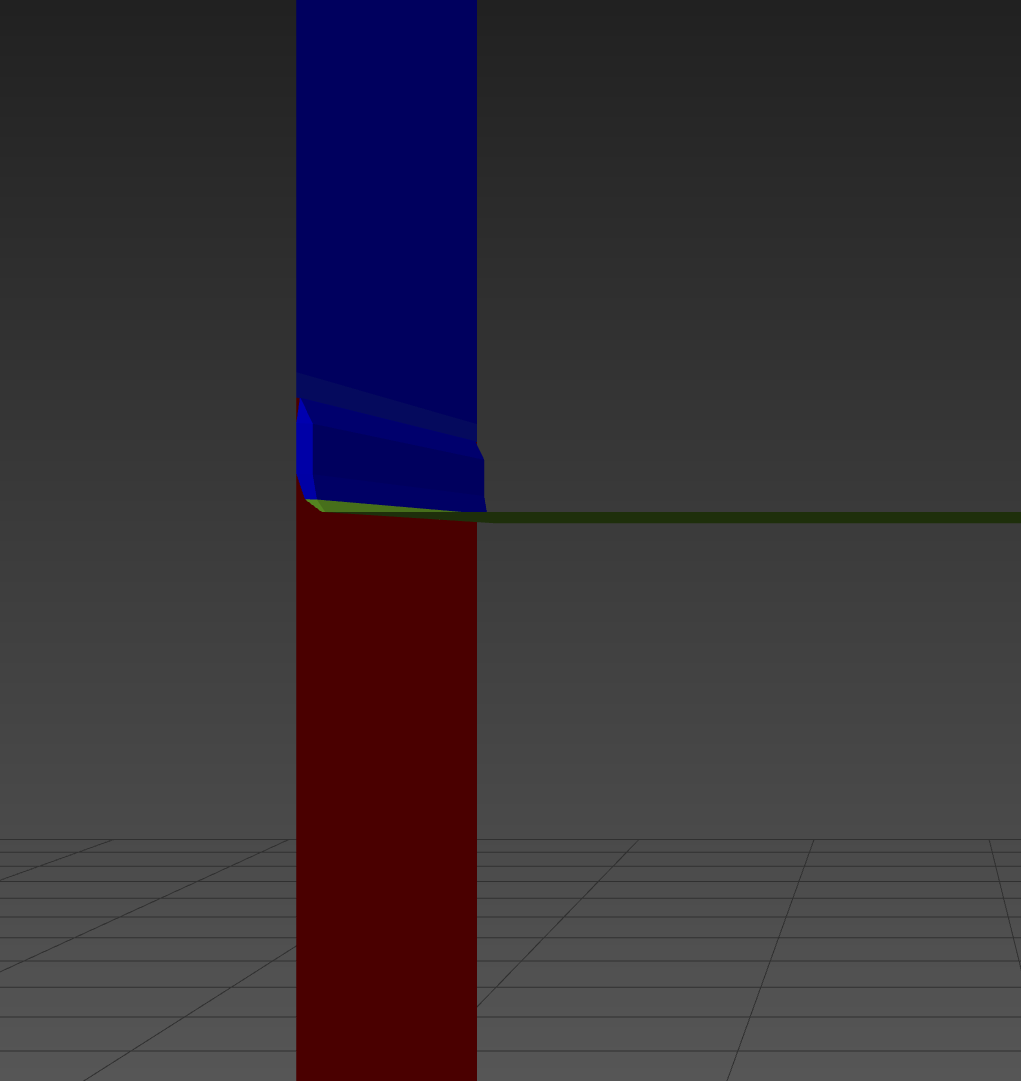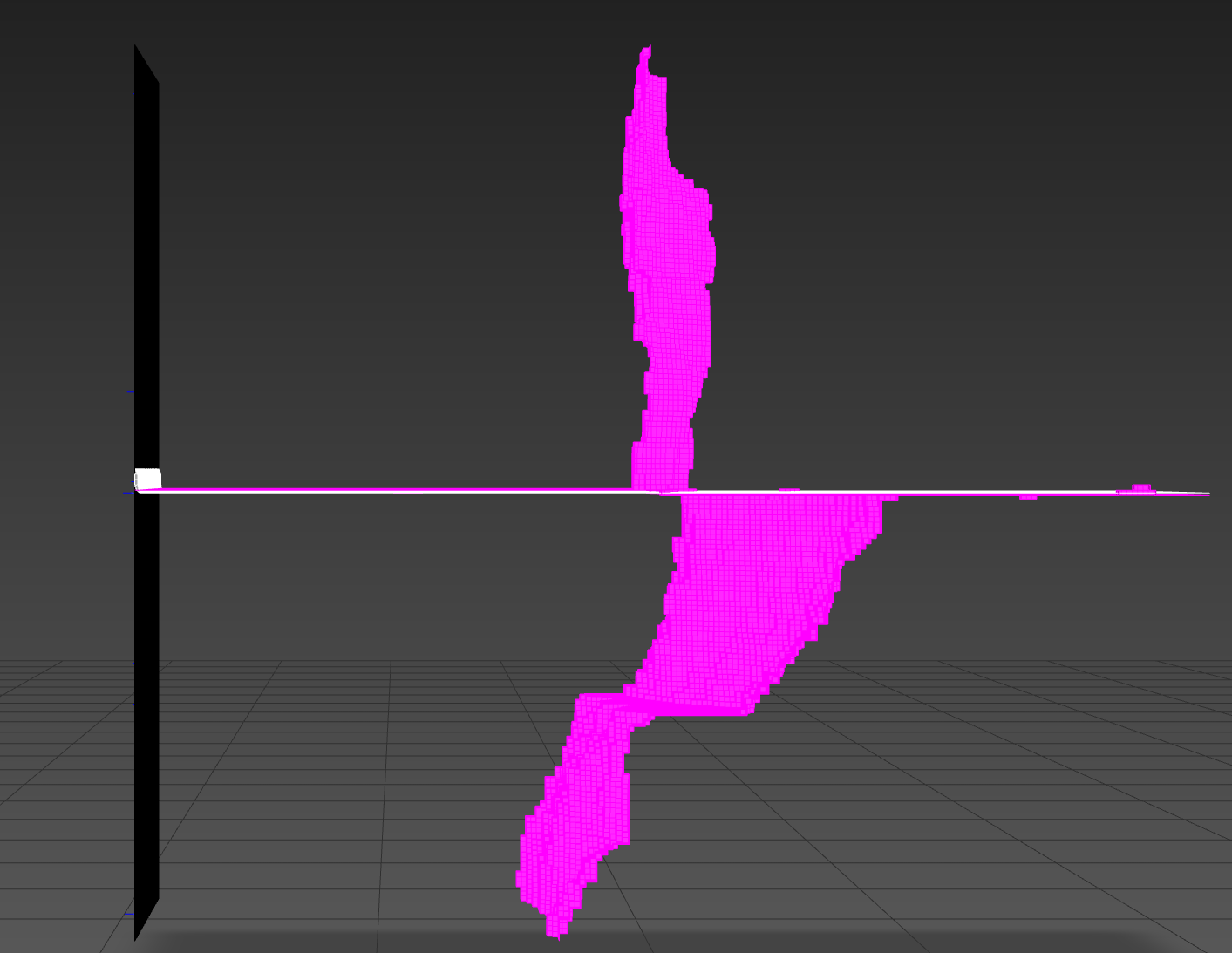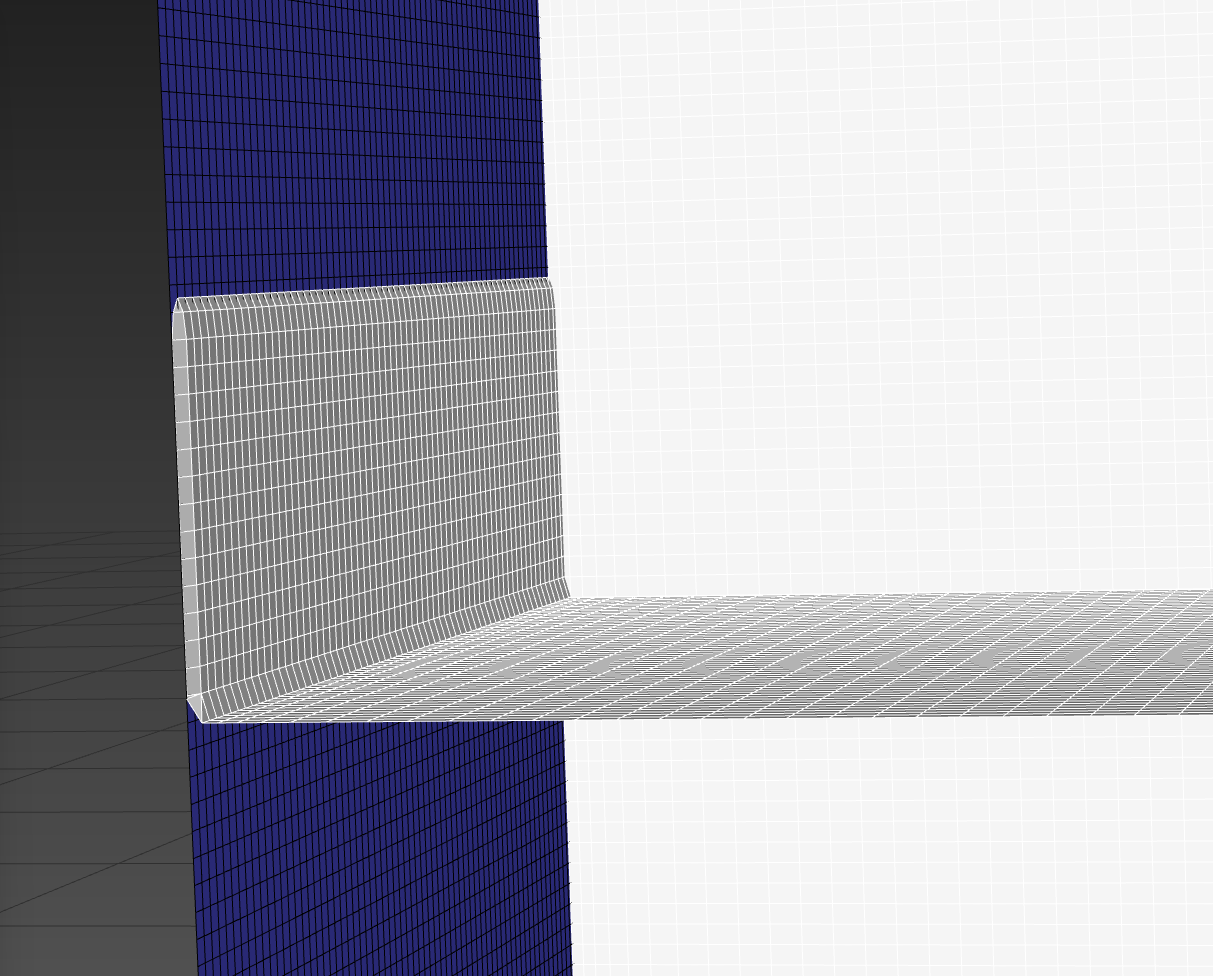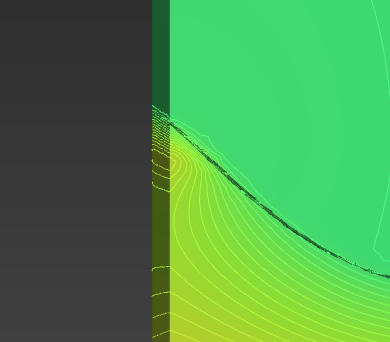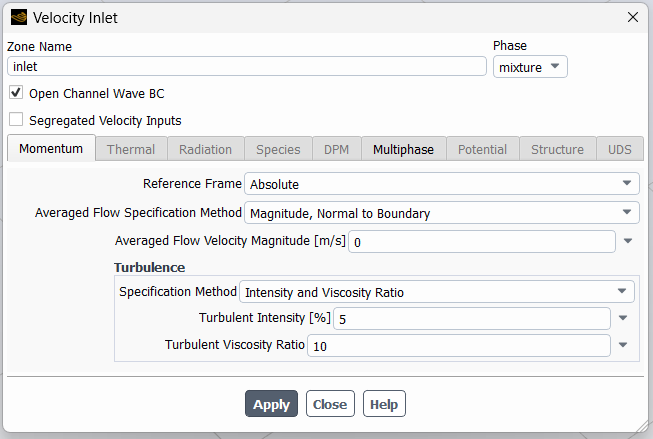TAGGED: fluent, initialization, velocity-inlet, wave
-
-
August 23, 2023 at 5:11 pm
-
August 24, 2023 at 8:27 am
Rob
Forum ModeratorHow many time steps have you run? Ie is this a real result or just an oddity of the initial conditions. What boundaries have you set?
-
August 29, 2023 at 12:49 am
rnegrete
SubscriberI have run several simulations with more than 1000 steps and I find the error every time and it carries on into the simulation making the wave break when it shouldn't. Even after the first wave, the error continues in the subsequent waves. I have set inlet as velocity-inlet, the top and outlet boundaries as pressure outlets. With and without a numerical beach. The height of the oddity seems to be the same as the wave height for some reason.
Thanks
-
August 29, 2023 at 11:21 am
Rob
Forum ModeratorI've not seen that with open channel before, you are using a single boundary surface at each end?
-
August 29, 2023 at 5:03 pm
rnegrete
SubscriberI'm not sure I understand what you mean but I think there's only one surface per boundary unless "interior" boundary is a second one.
I made a cube in Design Modeler, marked surfaces as inlet, outlet, top, bottom and walls. It shows 1 Part, 1 Body named Domain. I made a mesh with CFX without changing or renaming boudaries, and then configured on Fluent as follows:
inlet: velocity-inlet. Open Channel Wave BC ticked, Al defaults in Momentum tab, in Multiphase tab Free Surface=0, Bottom Level=5.6, Fifth Order Stokes Waves, Wave Height=1.73, Wave Length=20. I ran command define, then o-c-w-s and check passed.
outlet: pressure-outlet, Momentum: defaults, Multiphase Free Surface=0, Bottom Level=5.6.
top: pressure-outlet, Momentum: defaults, Multiphase Free Surface=0, Bottom Level=5.6.
walls: wall: defaults
I also have a bounday "interior-domain" that I didn't create and it's marked as interior.
Maybe the "interior-domain" could be a second boundary on each surface? How can I remove it if that's the case?
Thanks
-
August 30, 2023 at 8:49 am
Rob
Forum ModeratorInteriors are boundaries between cell zones or the facets that make up the volume mesh and should be left alone. There are exceptions, but this isn't one of them.
I assume you mean Ansys Meshing and not CFX? Did you set Fluent as the CFD solver at the mesh stage?
Bottom is -5.6m? Double check the wave height definition, I can never remember if it's amplitude or displacement from mean.
-
August 30, 2023 at 2:52 pm
rnegrete
SubscriberI’m sorry, it’s the meshing that comes with the Analysis System “Fuid Flow (Fluent)”. I used Physics Preference: CFD, and Solver Preference: Fluent in the mesh stage.
Bottom level is indeed -5.6 and the free surface is at 0. There are also 5.6 m of air above the free surface and the top of the domain.
Here’s the output for define -> b-c -> o-c-w-s
Wave Input Analysis for Velocity Inlet : Thread ID = 5
******************************
****************************** Wave-1 Analysis
******************************
*********** Current Settings :
——————
Wave theory : 5th-order-Stokes , Wave regime = Shallow/Intermediate
Wave Height (H) = 0.8650, Wave Length (L) = 30.0000
Liquid Depth (h) = 25.0000, Ursell Number (H*L*L/(h*h*h)) = 0.0498
Mandatory checks for full wave regime within wave breaking limit
——————————
—————————— —– Relative Height: H/h = 0.0346 , Maximum theoretical limit = 0.7800
Maximum numerical limit = 0.5500
Relative height within wave breaking limit
Wave Steepness: H/L = 0.0288 , Maximum theoretical limit = 0.1420
Stable numerical limit = 0.1000 , Maximum numerical limit = 0.1200
Wave steepness within wave breaking limit
Checks for selected wave theory within wave breaking and stability limit
——————————
—————————— —————- Relative height check
H/h = 0.0346 , Min : 0.0000 , Max : 0.5000
Relative height check : successful
Wave Steepness check
H/L = 0.0288 , Min : 0.0000 , Max : 0.1420
Wave steepness check : successful
Ursell Number check
Ur = 0.0498 , Min : 0.0000 , Max : 25.0000
Ursell number check : successful
Wave regime check
h/L = 0.8333 , Min : 0.0600 , Max : 10000.0000
Wave regime check : successful
Summary
———————-
Checks : passed
Selected wave theory is appropriate for application.
Thanks
-
August 30, 2023 at 4:01 pm
Rob
Forum ModeratorThanks, with all of the products it's difficult to keep track. We used to have CFX Meshing before that became Ansys Meshing after Fluent was bought. So some tools have changed names over the years just to make it really simple.....
The wave checks are to ensure the inlet is numerically valid, and won't (usually) mess up the inlet conditions. Can you plot volume fraction on the inlet with node values off? I just want to see if there's anything weird in the contour. Otherwise I'm a little stuck as it's behaving in a test here.
-
August 30, 2023 at 5:01 pm
-
August 31, 2023 at 11:33 am
Rob
Forum ModeratorYou may benefit from a little more resolution around the free surface but the mesh looks OK. How are you initialising the solution?
-
August 31, 2023 at 2:34 pm
rnegrete
SubscriberI've tried 3 methods to initialize the solution:Method 1 - Standard with defaults: I initially computed from inlet and then on the next initializations I've left it blank, Reference Frame: Relative to Cell Zone, Open Channel Initialization Method: Flat, Localized Turbulence Initialization Method: Unticked, Gauge Pressure: 0, X Velocity; 0, Y Velocity; 0, Z Velocity; 0, Turbulent Kinetic Energy: 3.75e-07, Specific Dissipation Rate: 1.047235, Water Volume Fraction: 0.Method 2 - Hybrid Initialization with defaults: I initially computed from inlet and then on the next initializations I've left it blank, Open Channel Initialization Method: Flat.Method 3 - Standard Initialization with defaults (as above) and patching the zone with the oddity with air.In all cases I have the inlet oddity.In Models -> Multiphase:Models Tab: Model: VOF, Volume Fraction Parameters: Implicit, Body Force Formulation: Implicit Body Force ticked, VOF Sub-Models: Open Channel Flow and Open Channel Wave BC both ticked, Interfase Modeling Sharp.Phases Tab: Air is Primary Phase and Water Secondary.Phase Interaction Tab: Force Setup: constant 0.072, Global Options: Surface Tension Modeling ticked, Continuum Surface Force selected, Adhesion Options: Wall Adhesion ticked. (I also tried without surface tension)In Solution -> Methods: defaults. Scheme: SIMPLE, Spatial Discretization: Gradient: Least Squares Cell Based, Pressure: PRESTO!, Momentum: Second Order Upwind, Volume Fraction: Compressive, Turbulent Kinetic Energy: Second Order Upwind, Specific Dissipation Rate: Second Order Upwind, Pseudo Time Method: Off, Transient Formulation: First Order Implicit, Non-Iterative Time Advancement unticked, Wrapped-Force Gradient Correction unticked, High Order Term Relaxation unticked.Here's an image with a refined inlet mesh.Thanks! -
August 31, 2023 at 3:42 pm
Rob
Forum ModeratorThat's odd as it's working in a test I'm running here.
-
August 31, 2023 at 4:10 pm
rnegrete
SubscriberIt's very wierd indeed. I can't think of anything else to try or where does the oddity comes from... I even tried initialization with Open Channel Initialization Method: None, and patching the water region with water and no joy... Can you think of anything else that could be causing it?
Thanks
-
September 1, 2023 at 11:13 am
Rob
Forum ModeratorNot sure, and I'm not able to download anything to test on this side to be able to test.
-
September 1, 2023 at 11:40 am
Amine Ben Hadj Ali
Ansys EmployeeWhat are your BC's? Is that bump at inlet or at outlet? Did you initialize with "wave" option on or not? Disable surface tension.
Provide the screenshot of the BC where the wave is entering to check wave settings.
-
September 1, 2023 at 1:35 pm
rnegrete
SubscriberBCs:
inlet: velocity-inlet. Open Channel Wave BC ticked, Al defaults in Momentum tab, in Multiphase tab Free Surface=0, Bottom Level=-5.6, Fifth Order Stokes Waves, Wave Height=1.73, Wave Length=20. I ran command define, then o-c-w-s and check passed.
outlet: pressure-outlet, Momentum: defaults, Multiphase Free Surface=0, Bottom Level=5.6.
top: pressure-outlet, Momentum: defaults, Multiphase Free Surface=0, Bottom Level=5.6.
walls: wall: defaults
bottom: wall: defaults
The bump is in the wave velocity inlet
I did initialize with wave option and the oddity is not visible on the first step but when the wave starts to come in, there's a signifficant change in the slope of the wave giving a similar result during simulation, furthermore, it happens in every wave, not only on the first one.
I tried with and without surface tension.
All the screenshots are from the velocity inlet from where the wave is entering the domain.
Thanks!
-
September 1, 2023 at 3:04 pm
Amine Ben Hadj Ali
Ansys EmployeeOne needs to reproduce this on our side that we understand what is going on so please provide some more context on the domain extents. A 2D abraction of the case can aslo help to understand if this due to the wave module or more or less issue with the lack of resolution of the wave (at least 20 cells per height / 200 cells per wavelength, at least 2X Wave Length above the free surface domain height) or a completely different issue.
-
September 4, 2023 at 11:58 pm
rnegrete
SubscriberThe wave seems fine after changing the domain to the specifications above.
Thank you very much!!
-
September 5, 2023 at 6:06 am
Amine Ben Hadj Ali
Ansys EmployeeWelcome and Good Luck with the next steps!
-
- The topic ‘Free Surface with Wave Boundary Condition Incorrect Initialization’ is closed to new replies.



-
5119
-
1831
-
1387
-
1248
-
1021

© 2026 Copyright ANSYS, Inc. All rights reserved.


